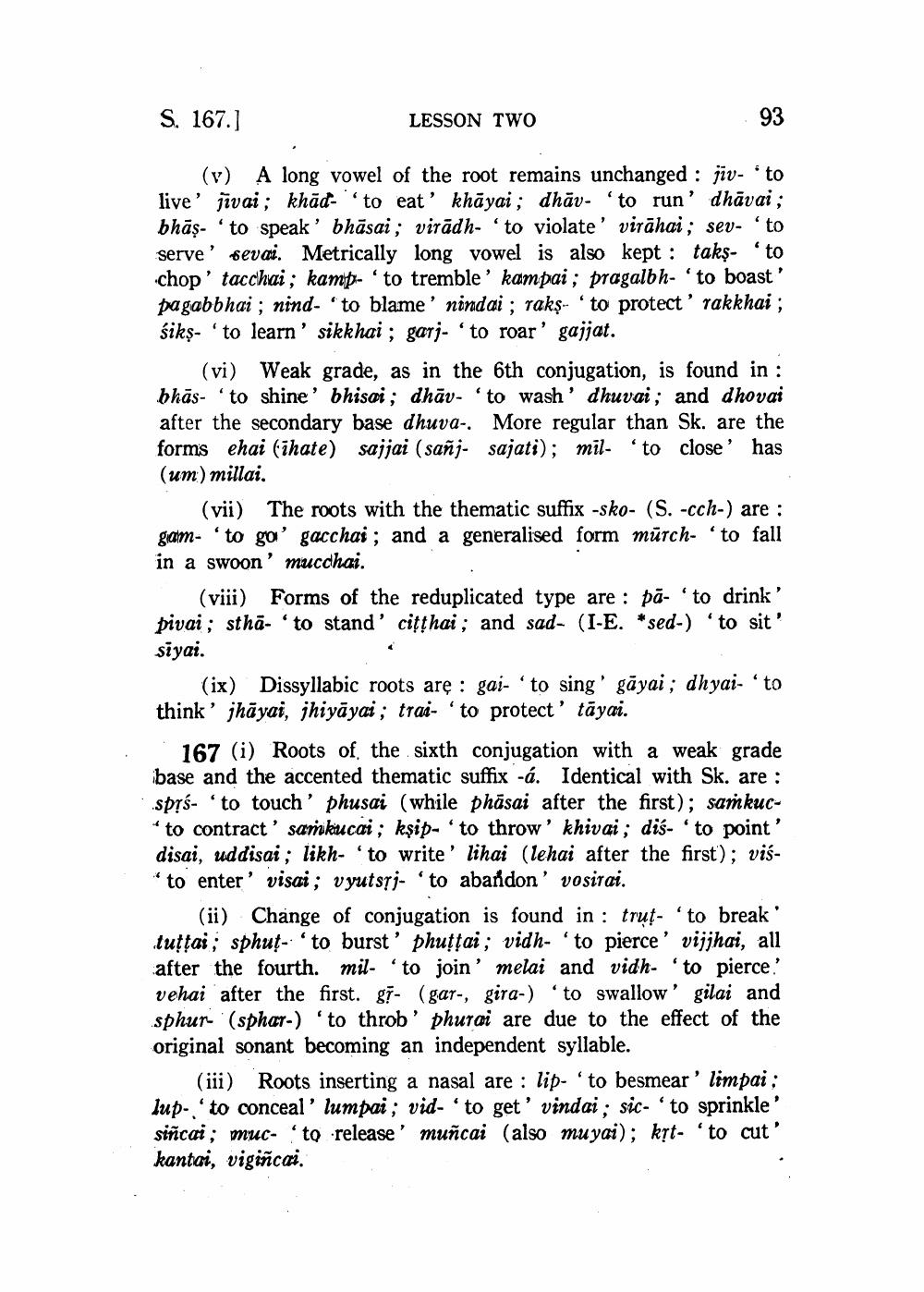________________
S. 167.]
LESSON TWO
93
(v) A long vowel of the root remains unchanged : jiv- 'to live' jivai; khād-' to eat' khāyai ; dhāv- 'to run' dhāvai ; bhās- 'to speak' bhāsai ; virādh- 'to violate' virāhai; sev- 'to serve' sevai. Metrically long vowel is also kept : takş- 'to chop' tacchai; kamp 'to tremble' kampai; pragalbh- 'to boast' pagabbhai; nind-'to blame' nindai; raks- 'to protect' rakkhai ; śikṣ- 'to learn' sikkhai ; gari. 'to roar' gajjat.
(vi) Weak grade, as in the 6th conjugation, is found in : bhās- 'to shine' bhisoi ; dhāv- 'to wash' dhuvai ; and dhovai after the secondary base dhuva-. More regular than Sk. are the forms chai (ihate) sajjai (sañj. sajati); mil- 'to close' has (um) millai.
(vii) The roots with the thematic suffix -sko- (S. -cch-) are : gam- 'to go gacchai ; and a generalised form murch- to fall in a swoon' mucchai.
(viii) Forms of the reduplicated type are : pā- 'to drink' pivai; sthā- to stand' citthai ; and sad- (I-E. *sed-) 'to sit' siyai.
(ix) Dissyllabic roots are: gai- 'to sing' gāyai ; dh yai- 'to think jhãyại, jhiyāyai ; trai- to protect tãyai.
167 (i) Roots of the sixth conjugation with a weak grade base and the accented thematic suffix -á. Identical with Sk. are : spré- 'to touch' phusai (while phāsai after the first); samkuc* to contract' samkucai; kşip- 'to throw' khivai ; dis- 'to point' disai, ud disai; likh- 'to write' lihai (lehai after the first); vis"to enter' visai ; vyutssj- 'to abandon’ vosirai.
(ii) Change of conjugation is found in: trut-'to break' tuttai; sphut- 'to burst' phutsai; vidh- 'to pierce' vijjhai, all after the fourth. mil- to join' melai and vidh- to pierce.' vehai after the first. gi- (gar-, gira-) 'to swallow' gilai and sphur (sphar-) to throb' phurai are due to the effect of the original sonant becoming an independent syllable.
(iii) Roots inserting a nasal are : lip- 'to besmear' limpai: lup-. 'to conceal' lumpai ; vid-'to get' vindai ; sic- 'to sprinkle' siñcai; muc- 'to release' muñcai (also mu yai); krt- 'to cut' kantai, vigiñcai.




